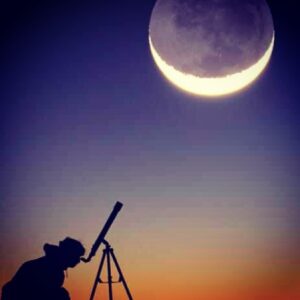
Photo Credit: Flickr.com/photos/cpasqueretta/9487584047
Shelach Lecha: Scouting Out Our Futures
by Rabbi Laura Geller
Parashat Shelach Lecha begins at a moment of transition. The people have come to the edge of Canaan, the Promised Land. God tells Moses to send 12 leaders, “heads of the people of Israel,” “to scout out the land,” with this instruction: “Go up there into the Negev and on to the mountain and see what kind of country it is. See if the land is good or bad, fertile or lean. Are the people strong or weak, few or numerous? Is the country good or bad? Are the cities opened or fortified?… And bring back some of the fruit of the land.” (Numbers 17-20.)
These scouts spend 40 days in the land, bringing back to Moses, Aaron and the community who had gathered to hear the report, a cluster of huge grapes as well as pomegranates and figs. Ten tell the story: “We came to the land you sent us to. It does indeed flow with milk and honey. The land we passed through to explore is a land that consumes its inhabitants, and all the people in it are giants. In our eyes we looked like grasshoppers, and so we were in their eyes.” Only two, Joshua and Caleb, trust that it will indeed be the Promised Land.
They all saw the same thing; challenge and possibility, but how they responded was different.
Those of us who are active older adults are also in transition, a new stage of life between building our careers/raising our families and frail old age. We don’t know what might lie ahead. What story are we telling about growing older?
No surprise that it turns out that the story we tell has a big impact on what our experience in this land of growing older will be. Many studies suggest that people with positive images of growing older often have a better experience of aging, and even the words we associate with growing older will affect the way we age. What words come to your mind when you “scout out the land?” Do you think decline, dependent, confused, incompetent, forgetful, bitter, or do you think creative, wise, accomplished, seasoned, insightful, interdependent, still growing? While there is no question that aging presents challenges, it also presents opportunities for harvesting the fruits of our lifetime and gratitude for the blessings we have. As Dr. George Valliant, the director of the Harvard Study of Adult Development and the author of Aging Well writes: “Those who have aged most successfully are those who (focus) on gratitude and forgiveness.”
Shelach lecha describes how the people believed the negative reports of the 10 scouts instead of trusting that God would help them make this transition a positive one. They saw themselves as grasshoppers instead of competent people with a purpose and a vision. The punishment? The entire community would wander in the desert for 40 years, a year for every day the scouts were on their mission. And no one from that generation–except Joshua and Caleb–would enter the Promised Land.
What story are you telling yourself? What are you looking for in this land that lies before you?
A Chassidic commentary suggests that the scouts with the negative report were looking for the wrong things. Moses’ charge to “go up into the mountain and see the land, what it is…” meant that when you reach the highest levels of wisdom, “you will see the land what it is”… you will see what really matters in life… that’s what you need to look for…”
What really matters at this stage of your life? At this moment of transition–when perhaps your life experience has brought you to your highest levels of wisdom–what might it mean to “go up the mountain and see the land, what it is” … and what it could be?
Rabbi Laura Geller, Rabbi Emerita of Temple Emanuel of Beverly Hills, is the first woman to be selected through a national search to lead a major metropolitan synagogue as Senior Rabbi. She was twice named one of Newsweek’s 50 Most Influential Rabbis in America, and featured in the PBS documentary “Jewish Americans.” She was ordained by the Hebrew Union College in 1976, the third woman in the Reform Movement to become a rabbi. She was on the editorial board of The Torah: A Women’s Commentary and is the author of The Torah of My Life: Forty Years in the Rabbinate and Still Counting. She was a Fellow of the Corporation of Brown University from where she graduated in 1971 and is board member of Encore.org, the Jewish Women’s Archive and B3/the Jewish Boomer Platform She was named by PBS’ Nextavenue.org as a 2017 Influencer in Aging. She is a founder of the first synagogue based village, ChaiVillageLA, which is part of the national Village Movement, and Chair of the Synagogue Village Network which helps synagogues explore a new paradigm for engaging active older adults. She is the coeditor, along with her husband Richard Siegel (z’l), of Getting Good at Getting Older. You can contact her through her website www.rabbilaurageller.com









0 Comments